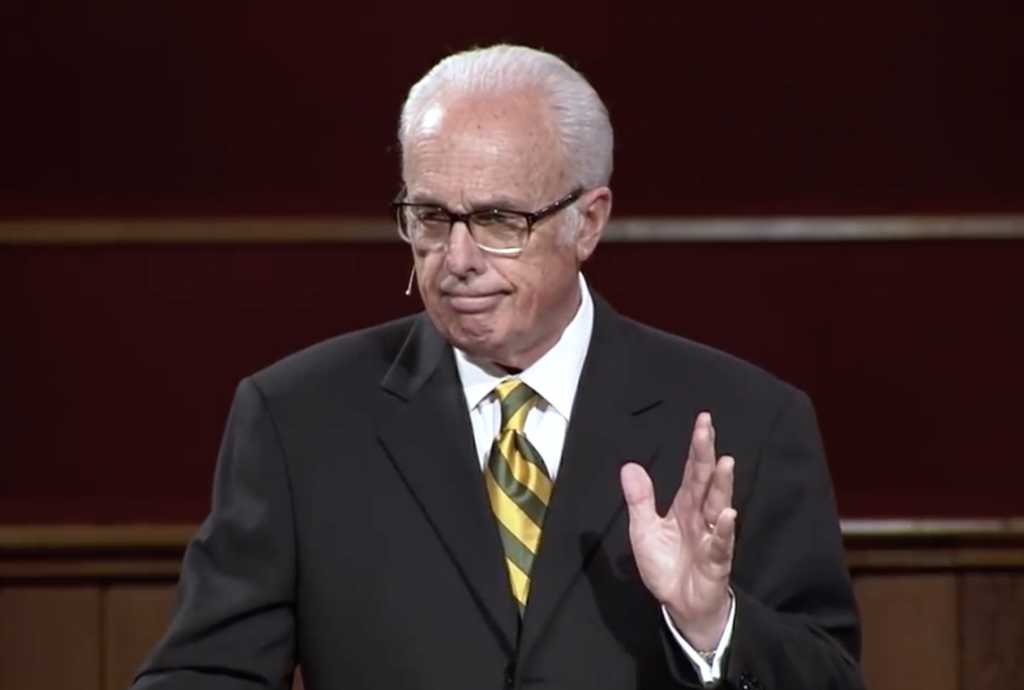There’s no denying the fact that California pastor and author John MacArthur hasn’t always called it right, but his warnings in 2018 about Christians’ “newfound obsession” with social justice was all too prescient.
At the beginning of a series entitled “Social Injustice and the Gospel,” the 80-year-old pastor of Grace Community Church in Sun Valley warned against the divisive nature of the swelling “social justice” movement, much of which is now championed by Black Lives Matter, a far-left ideological faction.
In the introductory blog post about the issue, MacArthur wrote:
The evangelicals who are saying the most and talking the loudest these days about what’s referred to as “social justice” seem to have a very different perspective. Their rhetoric certainly points a different direction, demanding repentance and reparations from one ethnic group for the sins of its ancestors against another. It’s the language of law, not gospel—and worse, it mirrors the jargon of worldly politics, not the message of Christ. It is a startling irony that believers from different ethnic groups, now one in Christ, have chosen to divide over ethnicity. They have a true spiritual unity in Christ, which they seem to disdain in favor of fleshly factions.
Evangelicalism’s newfound obsession with the notion of “social justice” is a significant shift—and I’m convinced it’s a shift that is moving many people (including some key evangelical leaders) off message, and onto a trajectory that many other movements and denominations have taken before, always with spiritually disastrous results.
Before sharing that observation, which is all too descriptive of Christendom in 2020, MacArthur recounted his own experiences in the civil rights movement of the 1960s.
MacArthur wrote that he spent “a lot of time” traveling through rural Mississippi with John M. Perkins, a well-known black evangelical leader, with whom he often preached in segregated black high schools.
He also recalled his experience the night Martin Luther King, Jr., was assassinated:
I was again ministering in Mississippi with John Perkins and a group of black church leaders in April 1968 when Martin Luther King Jr. was assassinated in Memphis. One of the men leading our group was Charles Evers, head of the Mississippi NAACP. (His brother Medgar had been killed in 1963 by the KKK.) When news of Dr. King’s murder broke, we drove to Memphis—and literally within hours after Dr. King was assassinated, we were at the Lorraine Motel, standing on the balcony where he was shot. We were also shown the place where James Earl Ray stood on a toilet to fire the fatal shot.
Evers, for his part, has refuted MacArthur’s recollection of events.
MacArthur is, nevertheless, absolutely right about the division “social justice” movements sow.
“I deplore racism and all the cruelty and strife it breeds,” he explained. “I am convinced the only long-term solution to every brand of ethnic animus is the gospel of Jesus Christ. In Christ alone are the barriers and dividing walls between people groups broken down, the enmity abolished, and differing cultures and ethnic groups bound together in one new people (Ephesians 2:14–15). The black leaders with whom I ministered during the civil rights movement shared that conviction.”
The octogenarian preacher addressed the Black Lives Matter specifically during a 2018 interview at The Master’s Seminary in Los Angeles, an affiliate of his church, Grace Community.
He made one point with which I deeply disagree: he suggested issues like racial injustice “disappear” once people become Christians as the Gospel takes over their perspectives. His larger point, though, was valid.
To the believer, the Gospel is preeminent and becomes the defining factor of his or her life.
“My responsibility is to realize that, in Christ, there is neither male nor female, Jew nor Greek, bond nor free; we’re all one in Christ,” MacArthur said. “And the Lord has chosen His church and that my responsibility is to preach the Gospel, throw my arms open to receive the ones the Lord has chosen, and embrace that with complete and full joy.”
“The object of life is no longer to fix past injustices,” he continued. “The object of life now is to proclaim Christ to whomever, and I just will not give that up for another agenda.”
Injustice absolutely exists within our society, and it is the church’s job to play a role in righting those wrongs. As I wrote in a previous article, there is a reason Jesus taught us to pray this way: “Thy Kingdom come, thy will be done, on earth, just as it is in heaven” (Matthew 6:9-13). We are called to pursue Kingdom principles even in this temporary world.
But that doesn’t mean we follow the systems and solutions set up by this world. Instead, we follow the Gospel, which promises a perfect justice. We are already compelled to value justice and mercy, because those are near to the heart of God and are mandated by the Gospel.



